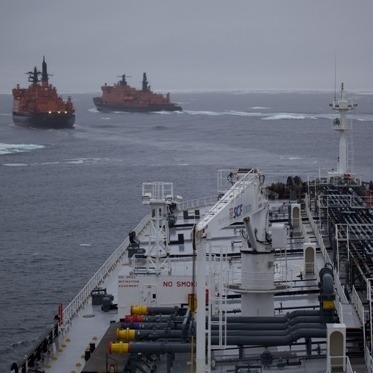
From the beginning of the year up to 22 July 2021, cargo traffic on the Northern Sea Route (NSR) totaled 17,047,282 tonnes, up 2.59%, year-on-year, Federal Marine and River Transport Agency (Rosmorrechflot) says referring to the Northern Sea Route Administration.
In the reported period, transit totaled 37,125 tonnes (no transit cargo was carried along the Northern Sea Route over this period of 2020 due to coronavirus related restrictions imposed on the global trade).
Shipping on the NSR lanes has intensified by 25.73%.
As of today, 640 vessels have been given permits for navigation in the water area of the Northern Sea Route (up from 509, year-on-year). This number includes 87 permits granted to foreign flagged ships (up from 77, year-on-year). Following a relative decline caused by the COVID-19 pandemic implications, exports of LNG and gas condensate from the NOVATEK’s terminal in Sabetta started growing. As of July 22, it grew by 2.15%, year-on-year, to 11.364 million tonnes (vevrsus 11.121 million tonnes in 2020).
Compact one-year ice currently covers less than 40% of NSR waters, mostly in the north-east of the Kara Sea, in the central part of the East Siberian Sea and near the Wrangel Island. There is an iceberg threat at the Cape Zhelaniya, in the Vilkitsky Strait and at the approaches to it.
Icebreaking assistance in the Northern Sea Route waters was provided by Rosatomflot’s nuclear-powered icebreakers Taimyr and Yamal. Icebreaking support in Sabetta port was conducted by Rosmorport’s icebreaker Tor.



